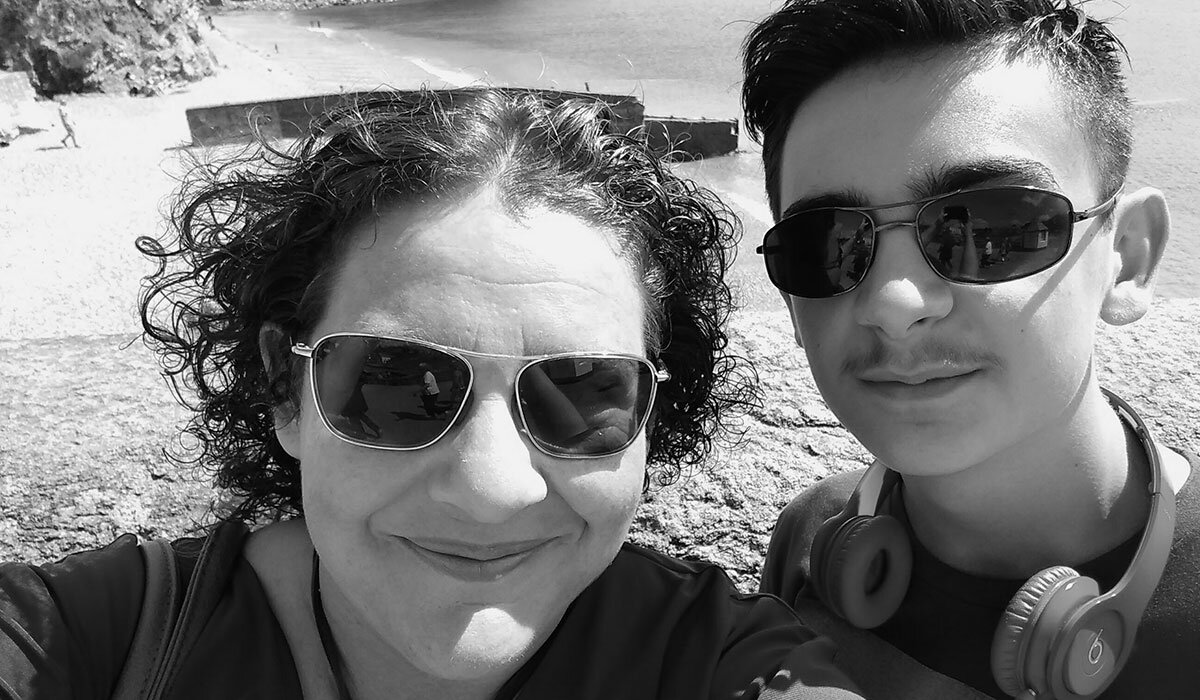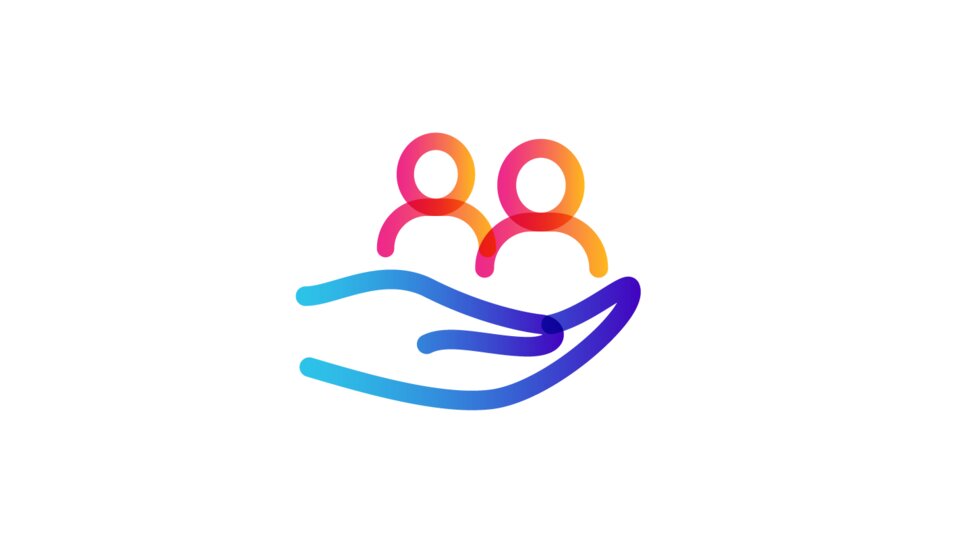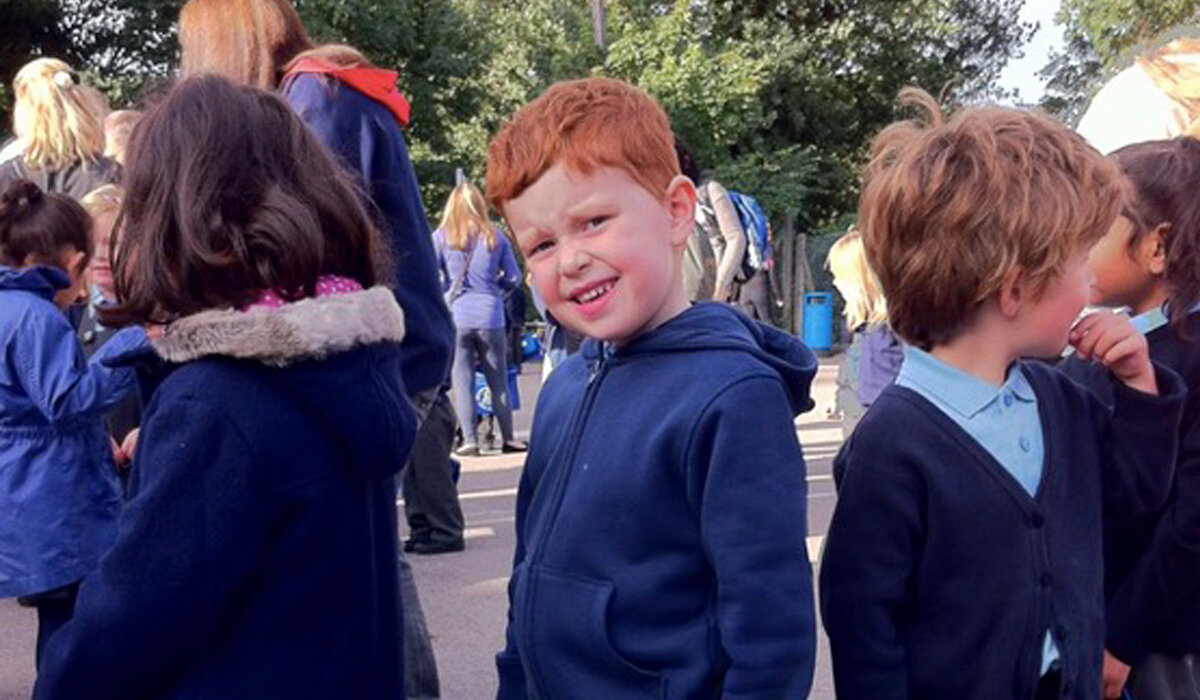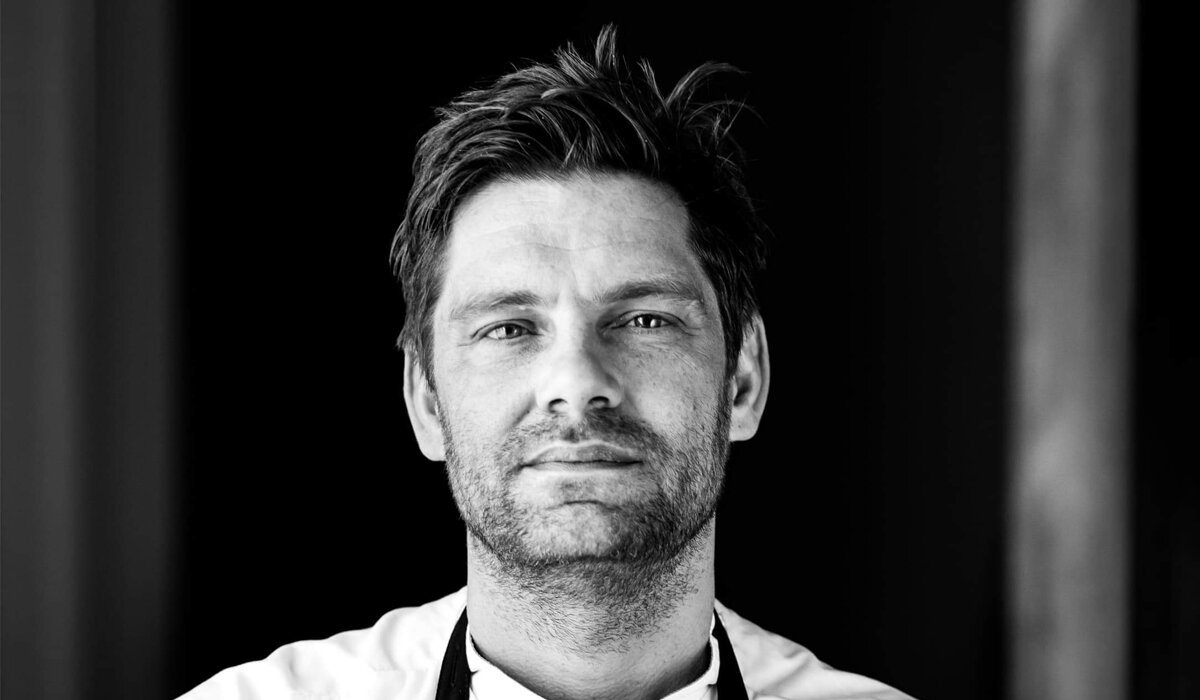
"Autism can be a gift because it can really help to give you that extra will-power, and you can get into things a lot more than many non-autistic people."
Callum McBride
- on autism and will-power
Stories from the Spectrum: Callum and Alison McBride
This year is the 20th anniversary of our partnership with Clifford Chance - an international law firm. Clifford Chance provides specialist representation for autistic people and their families at education tribunals. This alliance with our Education Rights Service has helped over 170 autistic people and their families, both through test cases and by providing information, advice and guidance.
To celebrate, we caught up with Alison McBride and her autistic son, Callum - a 17-year-old with a talent for film, music, and photography. You can check out Callum’s latest projects on his YouTube channel here.
Alison and Callum chatted to us about fighting for the right support, discovering Clifford Chance and the National Autistic Society, and the positive difference this has made...
Callum, what is being autistic like for you?
Autism can be a gift because it can help give you that extra will-power. You can get into things a lot more than many non-autistic people. Personally, I'm really into boxing and fitness. I also enjoy rap, film and photography.
Autism can also be a curse as it makes socialising 100x more complicated, because of anxiety. Socialising doesn’t come naturally to me. It’s something I’ve had to learn over time.
"Autism can be a gift because it can help give you that extra will-power and you can get into things a lot more than many non-autistic people."
Alison, what made you seek a diagnosis for Callum?
We noticed that Callum was different to other babies - we knew from the start. He didn't sleep, he cried a lot and became distressed if anyone but us held him.
As he got older, Callum refused to eat. He didn't make eye contact and he would often try and run off. Callum’s nursery referred him to a speech and language therapist, and we were told that he may have semantic pragmatic disorder.
Callum was eventually diagnosed with Asperger syndrome at seven-years-old.
You had to fight to get Callum the right support. What was the process like?
Callum struggled at mainstream primary school and the support he needed wasn't there. His school finally applied for an Assessment for a Statement of Educational Needs (now changed to an Education Health and Care plan or EHCP) when Callum was nine.
When we asked for support, we kept being fobbed off, or told there is no money. We were told, "you will never get a statement for him". When I discovered Callum’s current school, I told the local authority’s educational psychologist and SENCo (special educational needs co-ordinator) that I had found the perfect school. They all laughed at me and said he would never get a placement there.
The school's Statement application was refused by the local authority. We were told we had a right of appeal to the SEND Tribunal. The start of a two-year battle of three consecutive court appeals began.
That must have been incredibly hard for you both. How did you find out about our Education Rights Service and Clifford Chance?
Parents can represent themselves at tribunal, but the process is very complex and legalistic and I personally did not feel I could do it alone. Others successfully do and there is a lot of support out there, including organisations, advocates and parents who have been through the process. I also knew we couldn't afford the tens of thousands of pounds it can cost for legal representation.
I started searching the internet for support. I wasn't sleeping and I was terrified of going to court. But the thought of Callum going without help terrified me more. The delay in accessing support had a negative impact on Callum's mental health, and he was medically signed off school for six months. A friend encouraged me and told me that approximately 90% of parents’ SEND appeals were successful.
Searching online, I found the National Autistic Society website and reference to Clifford Chance law firm, who in some exceptional cases offer pro bono representation.
I wrote a pretty emotional email begging for help and I received a call a few days later. After a few more calls I sent over the grounds of appeal I had written and I was very grateful to hear that they would be shown to the partners at Clifford Chance.
I will never forget the day I received the call to say that Clifford Chance would legally represent Callum. I cried my eyes out with relief.
You had to go to multiple tribunals to get the right support for Callum. What was it like going to Tribunal?
We had three consecutive tribunals for Callum, over two years.
After I appealed to the Tribunal for Refusal to Assess, the local authority agreed to assess a few weeks before the hearing.
The assessment took place and then the local authority refused to issue a Statement, instead issuing a Note in Lieu document. This was not legally binding; its contents of provision were inadequate and it was not worth the paper it was written on.
We had to appeal to the Tribunal again. This went to a hearing, where we were represented by Clifford Chance. I was absolutely terrified, but the judge and panel were amazing. They had a clear understanding of the evidence bundle and it felt like we were having our voices heard for the very first time.
We won, and the local authority were ordered to issue a Statement. They agreed that the Note in Lieu was inadequate and that Callum’s needs were not being met, or understood.
However, when the Statement was issued, it was just a replica copy of the wording from the Note in Lieu, copied into the Statement. It was devastating.
So, we went to Tribunal number three, which was to dispute the inadequate contents and also to get the nearest school that could meet Callum's needs, named as his placement. The hearing took place over two days. It was tough and very draining.
Two weeks later, we found out we had won. We got the call from Christina, the lawyer at Clifford Chance who represented Callum in court, and we all cried. It remains one of the most special moments of my life and still makes me cry when I think about it.
The LA tried twice to appeal tribunal decisions to the Upper Tribunal. They were denied.
How did the National Autistic Society and Clifford Chance support you at this time?
The National Autistic Society and Clifford Chance brought expertise, experience, determination and continual support. There is no way we would have managed to navigate the complexities and procedures of the many challenges we faced during those traumatic two years.
As parents without legal support, it is like going to war when they (the local authority) have an army and all we have is a pop-gun. They have lawyers, barristers and teams of professionals at their disposal. Parents do not always have that luxury.
I think that Clifford Chance would agree that the cases were very challenging. We were so lucky to have the support of Christina, the lawyer who represented Callum during those two years. It was phenomenal to see how she managed to get such a deep understanding and grasp of our case. Christina was also supported by other lawyers and trainees from Clifford Chance. We were always put at ease and never made to feel a nuisance. I received some lovely messages from them when we won. It was emotional.
We also had the amazing support from a lady from the National Autistic Society Education Rights Service. She was my rock during one of the most difficult times of my life. She helped us understand what would happen at each stage of our case and she also worked so hard on our case. There was so much paperwork! On the days when things were very bad and we faced many setbacks, she would always pick up the phone and support me with constructive advice and listen to me.
As parents, knowing we had the National Autistic Society and Clifford Chance supporting us gave us the strength to carry on fighting. I am sure we would have given up after the first appeal without this support.
Without a doubt, the National Autistic Society changed Callum's life and has given him a bright future. Without the charity's service, support and advocacy I truly believe the lives of so many children would have a very different and negative outcome. This not only impacts on the child, but on the siblings, parents and extended family and friends. We are indebted to them forever.
Callum, what difference has going to a specialist school made for you?
The school is lot more attentive, the staff understand how to help me, and the work is more catered to the pace and abilities of each student. They focus on the children in the school. They care. It has made a huge difference to my life and I am very grateful for being able to go there and the help that I have received.
Alison, do you think your experience fighting for support for Callum make a difference when you were sorting out your younger son’s education?
On a personal level, I feel the experience definitely empowered me to support my children. I have grown in confidence too.
I learnt so much from those cases. I have often been contacted by other families who are experiencing similar situations. It is fulfilling to be able to pass some of this knowledge on, to show other parents that it can be done and to never take no for an answer.
I have unfortunately had to go to Tribunal since for Callum's two siblings, but managed to file the appeal and represent myself. I have also had some fantastic support from SENDIASS (Special Educational Needs and Disabilities Information Advice and Support Service), who can also offer independent advice.
Thankfully all of our children are now settled in supportive and understanding schools that are able to meet their needs.
What advice would you offer to other parents facing similar issues?
The first thing I would say, would be to read the SEND Code of Practice. This is the law and details in sections how support must work. As it comes in sections, you can find the relevant part you need.
There are many organisations - like the National Autistic Society Education Rights Service, IPSEA (Independent Provider of Special Education Advice), and SENDIASS - who offer support and have copies of draft letters that you can use. Visit their websites and make contact with them.
As a parent, you know your child best. Trust your instincts and don't be afraid to ask questions and to challenge if required.
"As a parent, you know your child best. Trust your instincts and don't be afraid to ask questions and to challenge if required."

If you are at point where you are considering requesting an assessment for an EHCP, go for it. Many people don't realise that if school are unwilling to make the application, you can do it yourself.
The strong likelihood is that following an EHCP assessment, your child or young person’s needs will end up far more understood than they were, and with this should come suitable provision.
Don't be afraid to appeal. The majority of parents win their cases. There has been a large increase in parents appealing to the Tribunal in recent years, I think parents have become more empowered to do this, having seen the high percentage that win.
Callum has been so lucky by attending the most supportive and brilliant school since he was eleven. It changed his life!
We are all so proud of Callum. He is a kind, gentle and thoughtful young man. He has faced and still faces so many challenges. He deals with everything in such a brave and mature manner and I am sure he has a very bright future. It is a pleasure to be his mum.
"We are all so proud of Callum. He is a kind, gentle and thoughtful young man. It is a pleasure to be his mum."
Further information
- Find out more about our Education Rights Service, including our Education Rights, Education Tribunal Support and School Exclusion helplines.
- Our helplines and advice services rely on donations, grants, fundraising and corporate partnerships. You can help us continue being here for autistic people and families by donating.
- Partnering with not-for-profit and business clients is a longstanding, central part of Clifford Chance's community and pro bono strategy, and the Firm is committed to developing relationships with the world's leading NGOs both locally and internationally. Find out more about Clifford Chance's pro bono initiatives on their website.
Similar stories

"Anyone delivering educational support needs to look beyond stereotypes and focus on the child in question."
Coral Bentley
- on educational support for Black autistic students
Read more

"At this time of year I often think back to James' first day at school, and how I sensed even then he was unique and dissimilar to his peers."
Louise Williams
- on her autistic son's first day at school
Read more

"Having autistic children has definitely changed me for the better."
Daniel Watkins
- on being a parent to autistic children
Read more
Education advice and guidance

The Spectrum magazine
Explore one of the UK's largest collections of autistic art, poetry, and prose. The Spectrum magazine is created by and for autistic people, and is available both online and in print.
Read the Spectrum





You are not alone
Join the community
Our online community is a place for autistic people and their families to meet like-minded people and share their experiences.
Join today
